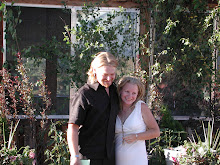War is not an easy thing to talk about in mixed company, but Memorial Day compels me to dedicate this column to our troops overseas and their return home.
Rural communities are acutely aware of the sacrifices involved in America's wars in Iraq and Afghanistan. A November 2006 study from the Carsey Institute of the University of New Hampshire found a disproportionately high casualty rate for rural soldiers.
The institute attributed this elevated casualty rate to "higher rates of rural military recruitment." Carsey Institute director Mil Duncan said, "Enlisting in the armed forces is a noble choice ... but rural youth shouldn't feel that it is their only choice." He added that "strengthening rural America's economy and job options is key in order to provide youth with a range of choices, including staying home and building strong, resilient rural communities."
Recently, several groups have formed to promote agricultural alternatives to war and to provide healing opportunities for war veterans.
The Farmer-Veteran Coalition is one such group. Starting in California, the group aims to go nationwide with its efforts to connect veterans with agricultural opportunities. The coalition "seeks to help our returning veterans find employment, training and places to heal on America's farms," according to its website, www.farmvetco.org. "We believe that our family farms, the sustainable farming movement and growing support for local and regional agriculture could all be well served by people already accustomed to hard work, discipline and dedication."
Another effort is under way to create an oasis of healing called Veterans Village. "Consonant with the spirit of healing, the retreat center will be constructed with ecology and energy efficiency in mind. As a self-sustaining community, the living unit will have organic vegetable gardens, solar-energy panels, farm animals and possibly its own irrigation and potable water supply," according to the website, www.veteransvillage.org.
A third group, Farms Not Arms, has adopted a broader mission, as indicated by the group's name. It seeks not only to connect veterans with healing on-farm opportunities, but also to support farm victims of war internationally and to reduce the likelihood of new wars through sound agricultural policies.
In a statement on the farmsnotarms.org website, organic dairy farmer Jim Goodman rebuffs the notion that anti-war groups don't support the troops. He writes: "There was never a lack of support for the troops from the peace movement; soldiers don't start wars, politicians do."
Instead, Goodman questions the government's support for the troops. "We know that the government denies the existence of health-related problems caused by the use of depleted-uranium munitions, just as they tried to dismiss the possibility of Gulf War Syndrome being a real illness. We know from past experience that veterans benefits have sometimes been too little and sometimes been much too hard to get."
These agricultural-oriented groups are taking it upon themselves to ensure robust support for our returning veterans. An honest look at casualty figures indicates that support will be sorely needed for many years to come.
In contrast to the official estimate of about 30,000 wounded soldiers, a January 2008 Rand Corp. study puts the figure much higher. Of the 1.6 million troops deployed in these wars, the study estimates that 300,000 are suffering from major depression or post-traumatic stress disorder, and 320,000 are suffering from traumatic brain injury.
The website www.antiwar.com offers a full accounting of casualties and is an excellent source of news and analysis. Other must-visit sites are Iraq Veterans Against the War and Military Spouses for Change.
To these multiple efforts, I have one small gesture to add. This Memorial Day I'll begin putting a candle out in my front window each night to light a path home for our troops' speedy return. I invite you to do the same.
This My Free Country column appeared in Capital Press on May 23, 2008 and in the Wallowa County Chieftain on May 21, 2008. See the following post for more discussion on the idea of putting a light in your window at night to help bring the troops home.
Subscribe to:
Post Comments (Atom)

No comments:
Post a Comment